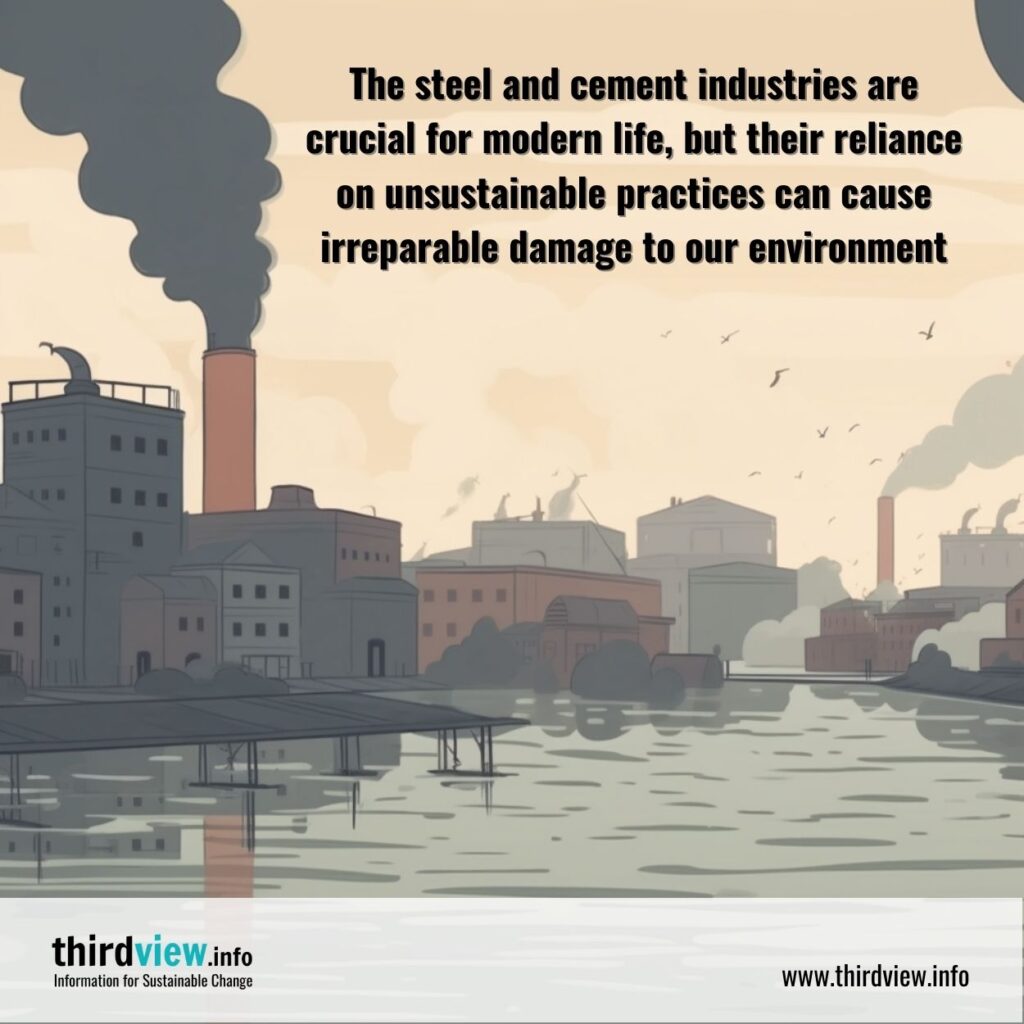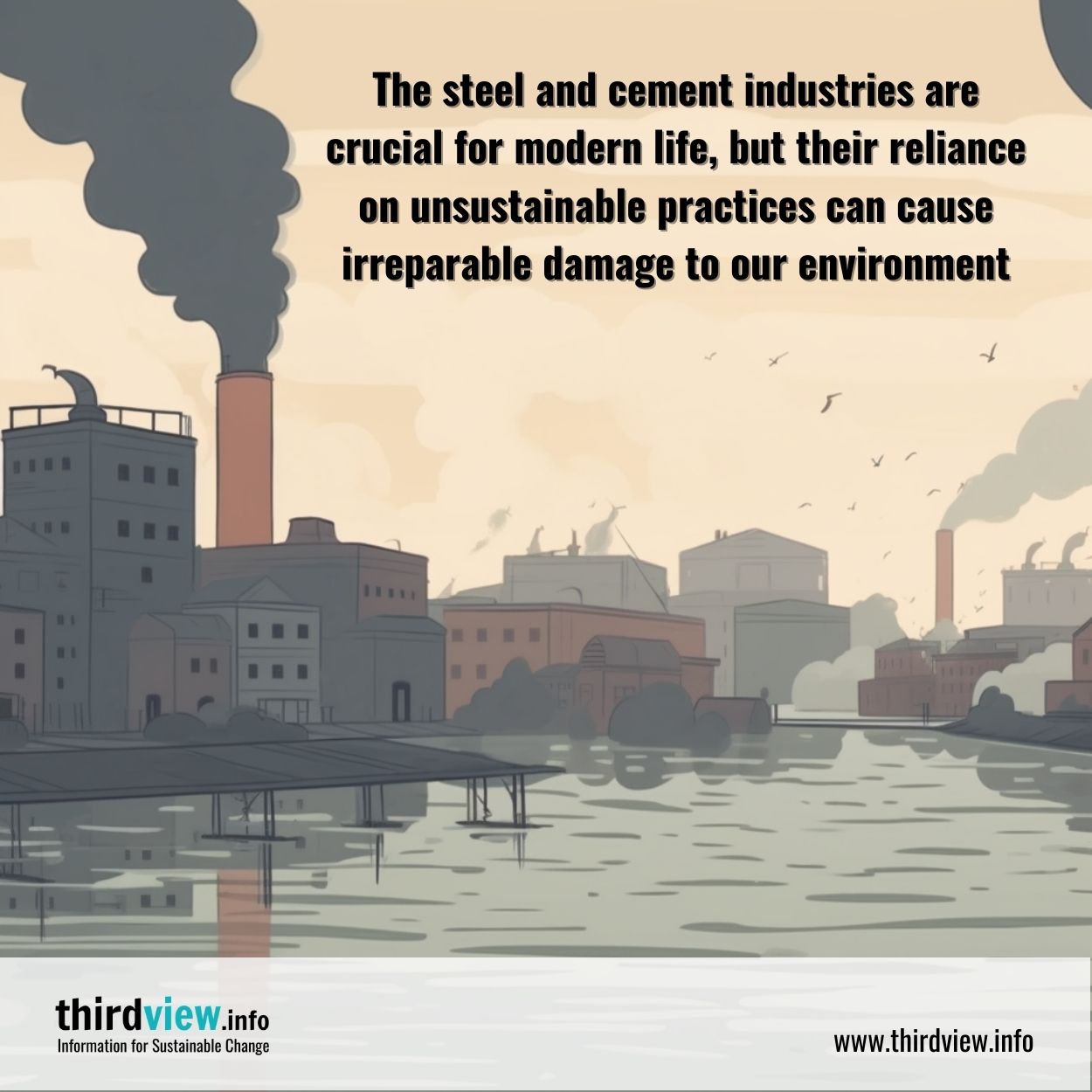The steel and cement industries are two of the most important sectors in the global economy. These industries provide key inputs for countless projects, from roads and bridges to buildings, vehicles, and more. However, both industries have been accused of relying on unsustainable practices that harm the environment. Let’s take a closer look at these issues.
The Steel Industry
The steel industry is one of the largest sources of air pollution in the world. In addition to air pollution caused by steel production facilities, there are also serious concerns about water contamination. In order for ore to be turned into steel products like wires or sheets of metal, it must undergo a process called smelting; this involves heating up ore until it melts down into liquid form. When smelting takes place near bodies of water like rivers or lakes (which is often done because these areas provide easy access to cooling resources), it can lead to dangerous runoff that contaminates local water supplies with heavy metals like lead or mercury. This runoff can even make its way into drinking water sources if left unchecked over time. This is further amplified by other environmental threats associated with steel production such as soil degradation, deforestation, and more.
There are several steps that can be taken to reduce emissions from steel production. One option is investing in renewable energy sources such as solar or wind power instead of relying on fossil fuels. This would reduce CO2 emissions while also providing an economic benefit to the industry. Additionally, new technologies such as electric arc furnaces (EAF) can be used, which use lesser energy than traditional blast furnaces, resulting in lower emissions.
Cement Production
Cement production also has an enormous environmental impact due to its reliance on fossil fuels for energy and its high rate of CO2 emissions. Additionally, cement plants are often located near sensitive ecosystems like waterways or forests which can further exacerbate their environmental impact. Cement production also releases harmful particulate matter into the atmosphere which has been linked with respiratory health issues and decreased life expectancy. Because cement production facilities require large amounts of water for cooling purposes during manufacturing processes (similarly to steel smelting plants), they have been accused of exacerbating drought conditions in certain regions across the globe by consuming large quantities of local resources needed for other uses such as agriculture or drinking water needs.
The steel and cement industries are vitally important for day-to-day life in modern society but their reliance on unsustainable practices can cause irreparable damage to our environment if not addressed soon. It is up to business owners and industry professionals alike to ensure that these practices are curtailed before they do any more harm than they already have. Only then will we be able to make meaningful progress towards a greener future for our planet.


